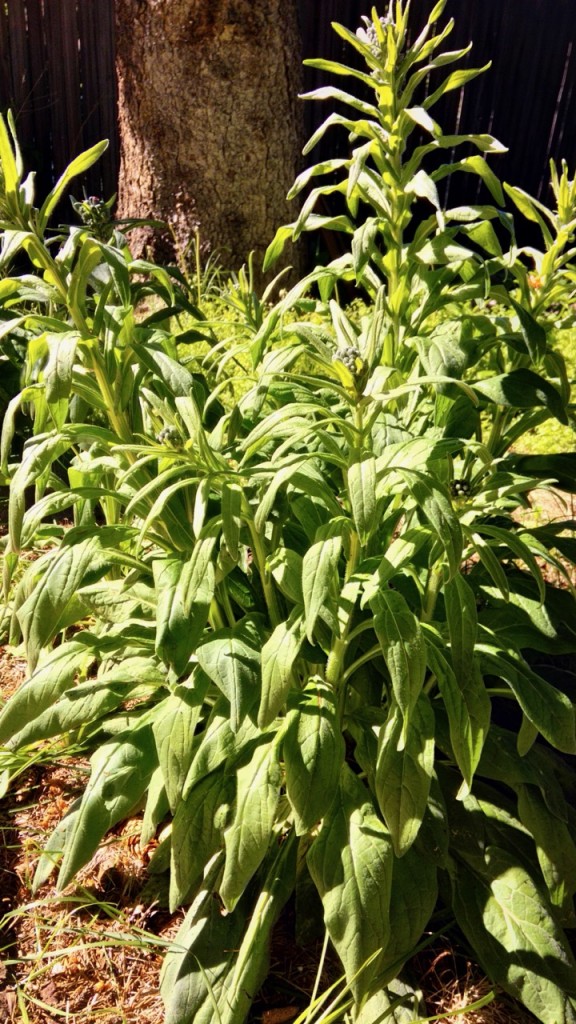I write like I garden. The creative processes are virtually identical in my mind. This Summer Series reflects on the ties between these two worlds.
Weeding is more serious than thinning. True weeds are opportunistic organisms that can steal and choke out the crops I want to grow.
In the writing life, I’ve compared “thinning seedlings” to pulling certain scenes from the book and setting them in a tickler file for magazine articles and short stories. In contrast, I think of “weeding” as identifying issues in my writing that simply need to be eliminated. There’s no use for this flat-lined dialogue, the repeated words, that peripheral cardboard character, the scene that I forced into the book purely because it showcased my knowledge on a certain topic. Uh oh. These are weeds. They need to be pulled and NOT saved for later. Throw them in the burn pile instead.

A frighteningly healthy “hounds tongue” near our back fence. Invasive and poisonous to livestock. That one has got to go.
Sometimes I’m not sure if something is a weed or not. I have to call in an expert, a friend who’s good at identifying local weeds—or a writing coach whom I trust to point out my writing flaws. I especially like experts who can also tell me what to plant instead to keep that weed from coming back.
Recently a trusted writing partner read one of my opening scenes in a novel draft. She gave some fine weeding advice. “You’re hiding this character’s anger,” she said. “You put all these nice words in her mouth, but eight pages in we see what really makes her tick. That’s what’s interesting. We need to see it sooner.”
Got it. The overly friendly dialogue needs to go. It’s a weed, one that’s choking out the reader’s interest. Let that main character be a bit terse, a little snippy with the people who help her. Plant that tension in there early on.
Weed this out. Plant this instead.
Oftentimes I need that outside opinion to help me identify weeds in my writing. Oftentimes it still hurts to pull the weeds. Stings the ego a bit. Sometimes I grow fond of a weed, not knowing its true identity. I thought that weed was pretty.
Don’t be fooled. If several editors and beta readers tell you that your manuscript has a weed, wise up. Roll up your sleeves and pull ’em. As always, confronting the problem is the only solution.
How about you?
Has an editor ever pointed out a major flaw in a scene, or a repeated bad habit in your writing? What was it? What did you do to pull the weed? What have you planted in its place?
